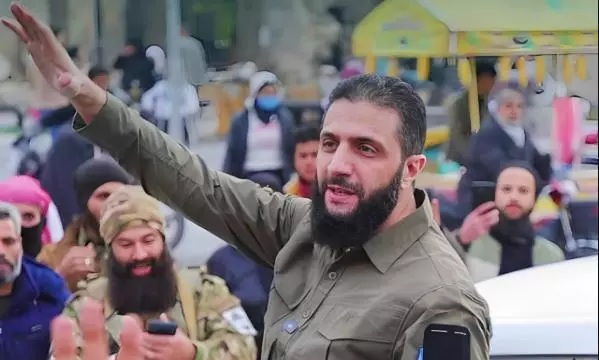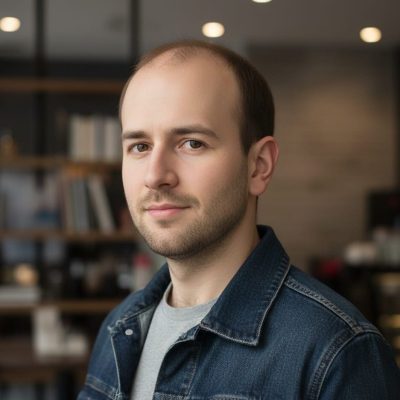
Syria stands at the edge of irreversible fragmentation. A series of covert meetings, shifting alliances, and calculated foreign interventions are accelerating a process that seems less like crisis management and more like deliberate partition.
By Rafic Taleb
Leaked reports indicate that Al-Shibani recently met Israeli National Security Director Ben Gvir in Paris, shortly after Tom Barrack met with Druze spiritual leader Mowafaq Tarif. Central to these talks were Israeli demands still unfulfilled by Ahmad al-Sharaa’s government: the complete displacement of Bedouins from the south and the opening of a humanitarian corridor between Mount Carmel and Sweida. The delay has already prompted warnings that an alternative Kurdish-Druze crossing could be established, altering the balance of power in the region.
Israel, frustrated with Damascus’ failure to honour post-Baku commitments, had prepared a new wave of strikes inside Syria. Only international guarantees forestalled this escalation. Instead, Israel pressed ahead with a long-term strategy: Jewish clerics laid the foundation stone for a settlement in Quneitra, signalling gradual annexation of southern Syrian territory through incremental “facts on the ground.”
Parallel to these developments, the Syrian Democratic Forces (SDF) pledged to send trainers to the south. The recent announcement of a “Unified Army in the South” is seen as the first stage of a broader project that includes restructuring local Druze leadership and creating a new internal security apparatus in coordination with al-Sharaa.
Yet Al-Sharaa himself has distanced Damascus from the issue, describing the Bedouin-Druze dispute as a 150-year-old, unsolvable conflict—an implicit abdication of responsibility in the south.
On the northern front, the international coalition has drawn a clear red line: any Turkish offensive against the Kurds will trigger direct retaliation. Constrained, Ankara has limited its involvement to offering logistical support to Damascus.
At the same time, al-Sharaa has been pressured to deploy forces at the Homs gate in preparation for a potential confrontation with the SDF. Hopes of igniting tribal revolts against Kurdish control east of the Euphrates have collapsed, as alliances there have pledged to crush any challenge to their authority.
For the Kurds, the message is clear: there will be no return to pre-2011 Syria. Their determination to preserve autonomy has already driven them to reconsider alliances, shifting from reliance on the US-British axis toward pragmatic cooperation with a French-Israeli-Russian alignment. The trajectory underscores what many observers see as inevitable—the partition of Syria into zones of influence, long associated with Kissinger’s plan to contain Sunni Arabs within a buffer statelet.
The global chessboard is no less consequential. The “Alaska Agreement” between Vladimir Putin and Donald Trump delineated Syria’s coast for Russia while conceding the south to American-Israeli oversight. Washington rejected Moscow’s request—backed by Damascus—for a presence in the south, insisting instead on controlling the David Corridor to eliminate Russia’s influence over there.
This reconfiguration is accompanied by America’s withdrawal from Iraq, consolidating its forces in East Euphrates while leaving a vacuum for jihadist extremists. The pattern recalls the 2011 Obama withdrawal that paved the way for ISIS’s rise—an outcome that once again appears designed to justify renewed Western intervention. Turkey’s ambitions are also at risk: its much-touted “Development Corridor” faces sabotage by proxy wars with Iraq’s Popular Mobilisation Forces. At the same time, ISIS’s reemergence is expected to serve as a deterrent against Turkish expansion.
The end of the Ukraine war will also mark a turning point. During the conflict, both Washington and Moscow courted Ankara, offering concessions in Karabakh and tolerating Turkish economic corridors. But with Ukraine nearing resolution, Russia is preparing to recalibrate—building an Alawite army at Hmeimim and auxiliary brigades in East Euphrates, while planning to undermine Turkish dominance of the Bosphorus by aligning with states on its western flank.
In southern Syria, UNIFIL forces are being positioned to enforce the 1974 separation of Israeli and Syrian troops, following al-Sharaa’s approval of armed group withdrawals even from Daraa. This effectively redraws Syria’s border with Israel, institutionalising a new reality on the ground.
Despite the absence of a formal normalisation deal, al-Sharaa’s direct coordination with Israel on security matters already amounts to de facto normalisation. His delays in implementing partition agreements reflect not resistance but an effort to absorb Sunni Arab anger, whose backlash could topple his fragile rule.
The outlook is grim. With Abu Mohammad al-Jolani delivering a decisive blow to al-Sharaa in recent months, the current authority appears incapable of recovery. Meanwhile, a new round of sanctions—potentially harsher than the Caesar Act—looms on the horizon, further tightening the noose on an already shattered economy.
Syria has crossed the threshold of no return. What emerges is not a state in recovery but a fractured land divided into enclaves of influence, governed not by Damascus but by the shifting interests of regional and global powers. The outcome is not reconstruction but permanent partition—a slow, calculated dismantling of Syria’s sovereignty.






